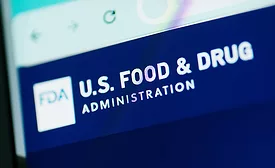Regulatory
The Views of Robert F. Kennedy Jr. on Food and Food Packaging Safety
The MAHA Commission's actions on food chemical safety, GRAS determinations, and other food safety and nutrition issues are occurring against a backdrop of the reduced FDA workforce and a thinner budget
August 19, 2025
No Reason to Wait: Prepare Now for FSMA Rule 204
Do you understand what your business needs to do, and are you ready to meet the FSMA Rule 204 requirements?
August 18, 2025
Food Labeling: Are Standards Being Relaxed or Recovered?
Food labeling operates at the intersection of public policy and private enterprise, fulfilling regulatory obligations and influencing purchasing decisions
August 13, 2025
Never miss the latest news and trends driving the food safety industry
Newsletters | Website | eMagazine
JOIN TODAY!Copyright ©2026. All Rights Reserved BNP Media.
Design, CMS, Hosting & Web Development :: ePublishing












